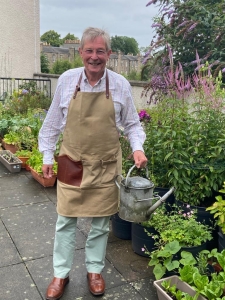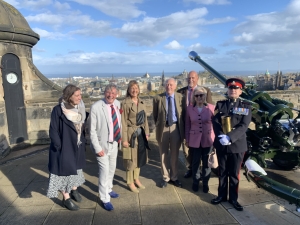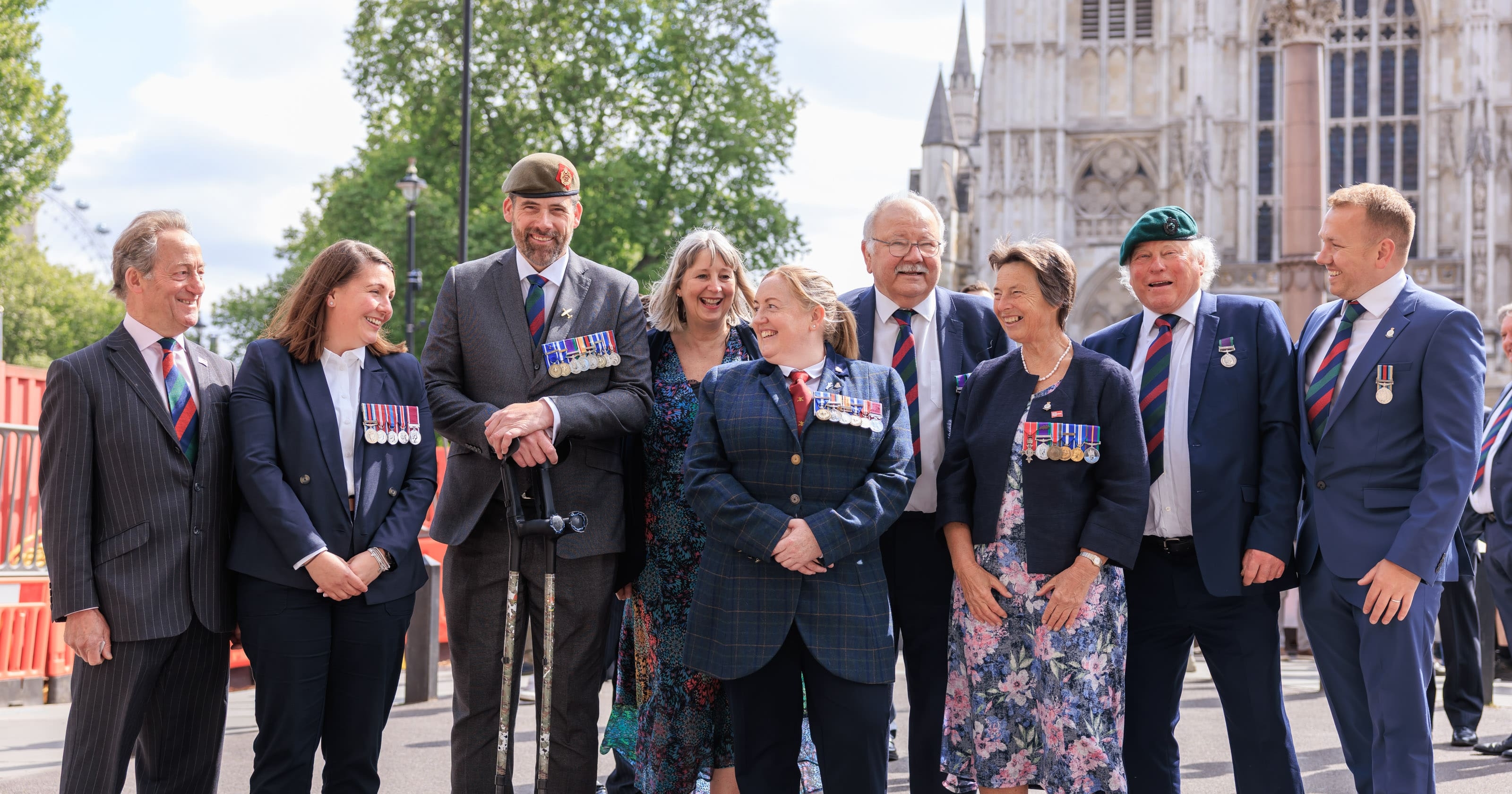“The Covid-19 pandemic made me realise how much I want my legacy to help others. That’s why I’ve pledged a gift in my Will to the Army Benevolent Fund.”
In 2020, the Covid-19 pandemic sparked a period of reflection for many people. The owner of a successful PR agency, Martin Hunt used this time to think about the legacy he wishes to leave behind.
“I’ve arranged for my family to be looked after, but I also want the organisations I care about to benefit from whatever money is left,” he said. “Those range from the church hall where I learned to play badminton, to theatre companies I’ve worked with and organisations that teach children how to cook.”
The child of a soldier, Martin has also generously pledged a gift in his Will to the Army Benevolent Fund (ABF). “I want my legacy to help improve people’s lives in fundamental ways, and that’s what the ABF does,” he said.
The ABF was set up in 1944 to ensure that soldiers returning from the Second World War could be taken care of during peacetime. In 1946, Field Marshal Montgomery fronted the charity’s first national appeal, calling on the public to support those returning from war who faced hardship and need.
“My father served in the Eighth Army with Monty (Field Marshal Bernard Law Montgomery) as part of the Desert Rats during the war. But like many soldiers back then, he didn’t really talk about it.”
“I’ve always been interested in my father’s Army career, as well as those of my close friends, Brigadier Hugh Monro and Major Charles Dunphie, who was previously the Director of the ABF in Scotland ” said Martin I learned a lot about the charity and its work from him.
Martin was born in “No Man’s Land” – or Nomansland – a small village in Wiltshire. “I still have that detail on my passport to this day, and people always comment on the name of my place of birth!” he said.

In fact, Martin’s family were on their way to New Zealand at the time. “We travelled after my birth by ship back in 1948, and I spent the first 10 years of my life there – I have some very happy memories of being part of the church community.”
When Martin returned from New Zealand, he attended the newly-founded Rannoch School in Perthshire, started by three masters from Gordonstoun School. “There was a great philosophy of always telling the truth,” he said. “That helped shape the strong moral stance I’ve always taken in life.”
Martin started his PR and communications career in Inverness, before moving to Edinburgh in 1982.“My proudest moment was organising the comms for the Edinburgh Military Tattoo, which we took to the Red Square in Moscow in 2007 with Brigadier Sir Mel Jameson.”

Martin also appeared regularly on Scottish television. “I did a magazine programme on Fridays for many years, which I loved,” he said. “Today I’m still as busy as ever. I’ve just finished a month at the Edinburgh Festival – which is a wonderful time, but very exhausting!”
“I love my friends and family, and I’m grateful to be in good health,” said Martin, who recently celebrated his 70th birthday with 170 guests ! But I will admit that I’ve spent many years putting work first.”
“A lot of what I do now involves supporting others. I work with organisations that look after children and young people in residential care, and I’ve been helping to support the Ukrainian community for the past four years. I hope this don’t sound too arrogant, but I think it’s made me a more caring person.”
“I like to help smaller charities and organisations because I’ve seen that they make the most impact,” said Martin.
Last year, the ABF helped more than 80,000 members of the Army family around the world, through its funding for other organisations and financial assistance to individuals and families in need.
Martin said: “Sometimes it’s more about the little things. I love that the ABF helps improve lives by, say, tarmacking an ex-soldier’s drive so they can get their disability vehicle to the front door. Things like that make a huge difference, and it’s one of the reasons why I like to talk about the benefits of legacy giving. The more people who know about it, the more causes will benefit.”
“The support of even one person can mean so much, no matter what they’re able to give. Even if it’s just to help buy an art set for someone who wants to learn how to paint, you’re making a positive impact. It’s about people helping people.”

